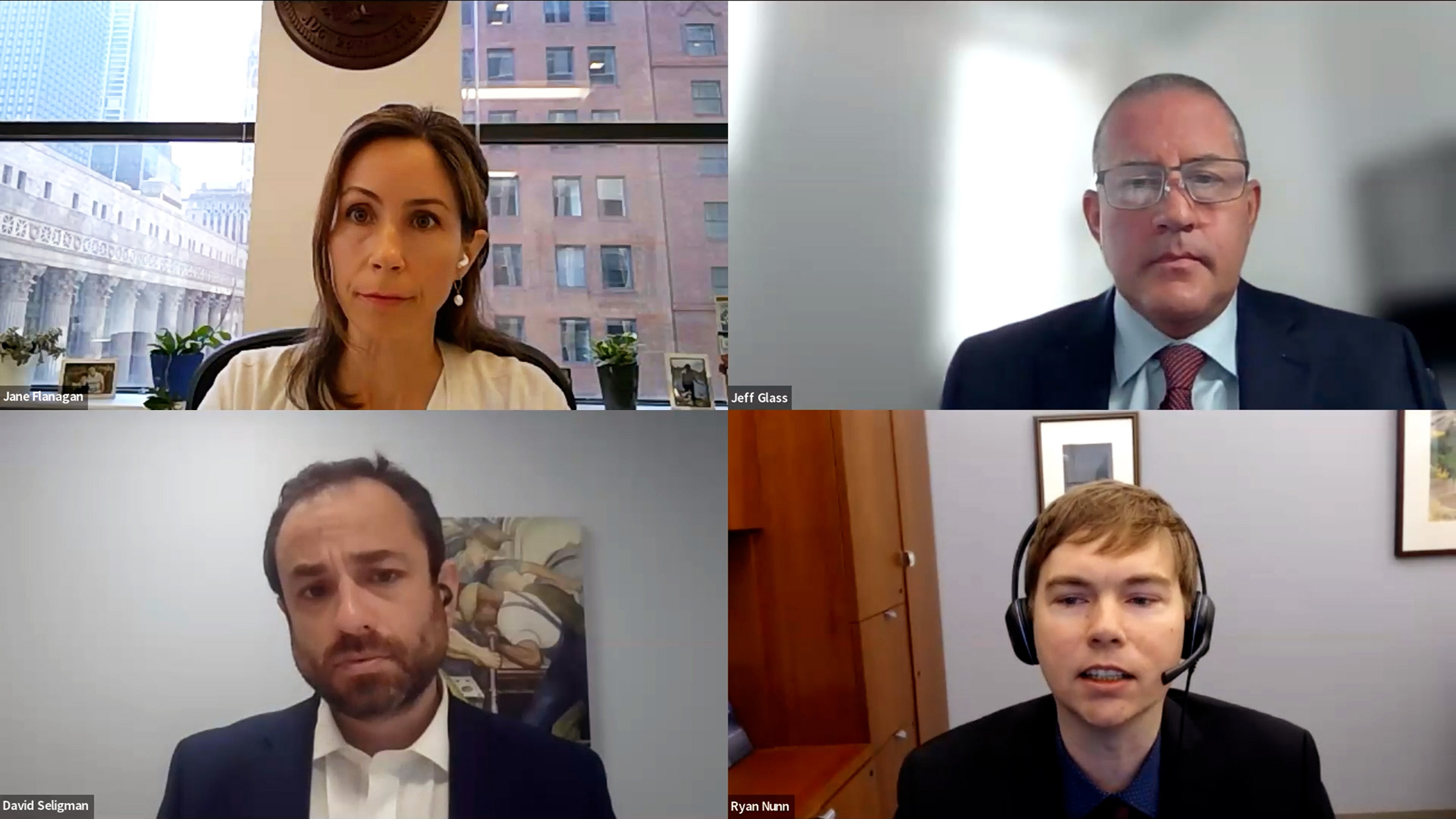Minnesota made national news last year when it became the first state in well over a century to ban enforcement of non-competes—contracts that prohibit employees from taking a similar position with a new employer or starting a competing business. In Minnesota, the new law prohibits enforcement of non-competes entered into after July 1, 2023, but leaves existing agreements in place for the nearly 300,000 Minnesotans we estimate had a non-compete before the law passed.*
With this change, Minnesota joined California, North Dakota, and Oklahoma, which have all had similar laws in place since the late nineteenth century.
While Minnesota may be the first state in generations to institute a widespread ban, other states have also recently implemented policies to address non-competes, especially over the last five years. Colorado, Illinois, Maine, Maryland, New Hampshire, Oregon, Rhode Island, Virginia, Washington, and Washington, D.C., all have income-based thresholds that effectively ban enforcement of non-competes for workers earning less than a certain amount. Some other states limit enforcement to certain occupations, such as physicians, accountants, broadcasters, and social workers. There was also federal movement on this issue in early 2023 with the release of the Federal Trade Commission’s proposed rule to ban non-competes.
Unique stories, common themes
The recent flurry of state and federal action on non-competes is indicative of policymakers’ interest in how non-competes can impact workers across the economic spectrum. While there may be quantitative data available about the estimated number of individuals affected by non-competes, there is less information about their impact on workers’ lives. To better understand that human component here in Minnesota, we interviewed a group of low- and moderate-income workers in the Twin Cities area who have experience with these contracts. Three themes consistently emerged from our discussions:
- The timing of signing the non-compete was last-minute;
- Geographic scope of the contract was overly broad; and
- Uncertainty stemming from a lack of clarity about the contract’s terms and enforcement caused anxiety.
Last-minute timing
Ideally, a contract signing involves plenty of advance notice and ample time to review the document. That’s not always the case with non-competes. Some workers we talked to said their new employers presented them with non-competes after they had already accepted the job offer. Sometimes new employers presented the contracts after workers had already submitted their notice of resignation to their previous employer. Several interviewees shared that they were not given enough time to review the non-competes presented to them. This rush to sign placed extra pressure on individuals who might not have fully understood the contracts. “You’re looking at legal documents and there’s no way for us to understand. At that point, I didn’t get it,” a cosmetologist explained.
A logistics worker recalled that he was told in no uncertain terms that if he didn’t sign the contract, he wouldn’t have the job. With a family to support, he didn’t feel like he had a choice. “My hands were tied at that point,” he recalled. “Do I want to work or be unemployed? You sign it and keep going on.” These stories we heard about the timing and the pressures to sign were consistent with previous research done on this issue in 2018, 2021, and 2022.
Broad geographic scopes
While any non-compete has the potential to limit workers’ career possibilities, we heard examples of contracts with extremely broad geographic scopes that barred workers from pursuing their professions in entire cities or regions. While some of the overly broad contracts would have been unlikely to withstand legal scrutiny if they were reviewed by a judge, the workers expressed reluctance to take their chances in court.
For example, one of our interviewees, a hair stylist and regional director for a salon, had a contract that stated she could not work within 25 miles of any of the salon’s four locations if she left her position, a provision that effectively blocked her from working in the entire Twin Cities metro region. Violating the agreement potentially put her at risk of being sued by the company. As the single mother of a young daughter, she didn’t feel like she could take that chance.
Uncertainty and anxiety
Stress and anxiety were common experiences for the workers as they struggled to follow the terms of their non-competes. A cosmetologist we spoke to described being careful not to tell her clients where she was going to work when she left her employer. An attorney had advised her that if she didn’t actively solicit her former clients and they instead found her on their own, she could do their hair. So when her former clients, many of whom were “a lot like family,” sought out her services, she accepted those jobs. However, she soon received communications from her previous employer that reiterated the contract terms around seeing her former clients and the consequences of violation. The intense worry of not knowing whether she could be sued pushed her to stop working until the non-compete expired. This period of unemployment caused her to take “a huge hit financially.”
When management issued companywide layoffs in 2022, the logistics worker we spoke to was informed that he remained subject to the terms of his non-compete contract, which prohibited him from working for a competitor for a year. With the logistics industry being as broad as it was, he felt unsure who the company considered to be its “competitor” and worried he would accidentally violate the terms of the contract. The inability to pursue employment in his area of expertise and the high stress of the situation deeply affected his job search. Desperate to pay the bills, he accepted lower-wage work from companies outside the parameters of his contract. “If the non-compete was not there,” he reflected, “I’m confident that I would be near what I was making [before]. The non-compete took away options and opportunities.”
Listening to workers’ experiences
As these experiences demonstrate, non-competes can deeply affect workers’ career opportunities and well-being. Our interviewees were clear that whether it was the anxiety of potentially getting sued by a former employer for not correctly adhering to the contract or the financial stress of having to take a job that paid less, having a non-compete made a difference in their lives.
While it is too early to know the full impacts of the new changes in Minnesota for workers and employers, states and the federal government have a strong interest in continuing to address non-competes. As decision-makers discuss and study these contracts, worker experiences like the ones featured here should be considered.
Endnote
* We used new data from the Federal Reserve’s Survey of Household Economics and Decisionmaking to roughly approximate the number of Minnesotans with non-competes, multiplying the estimated prevalence for our census region by the number of non-self-employed Minnesota workers overall.







